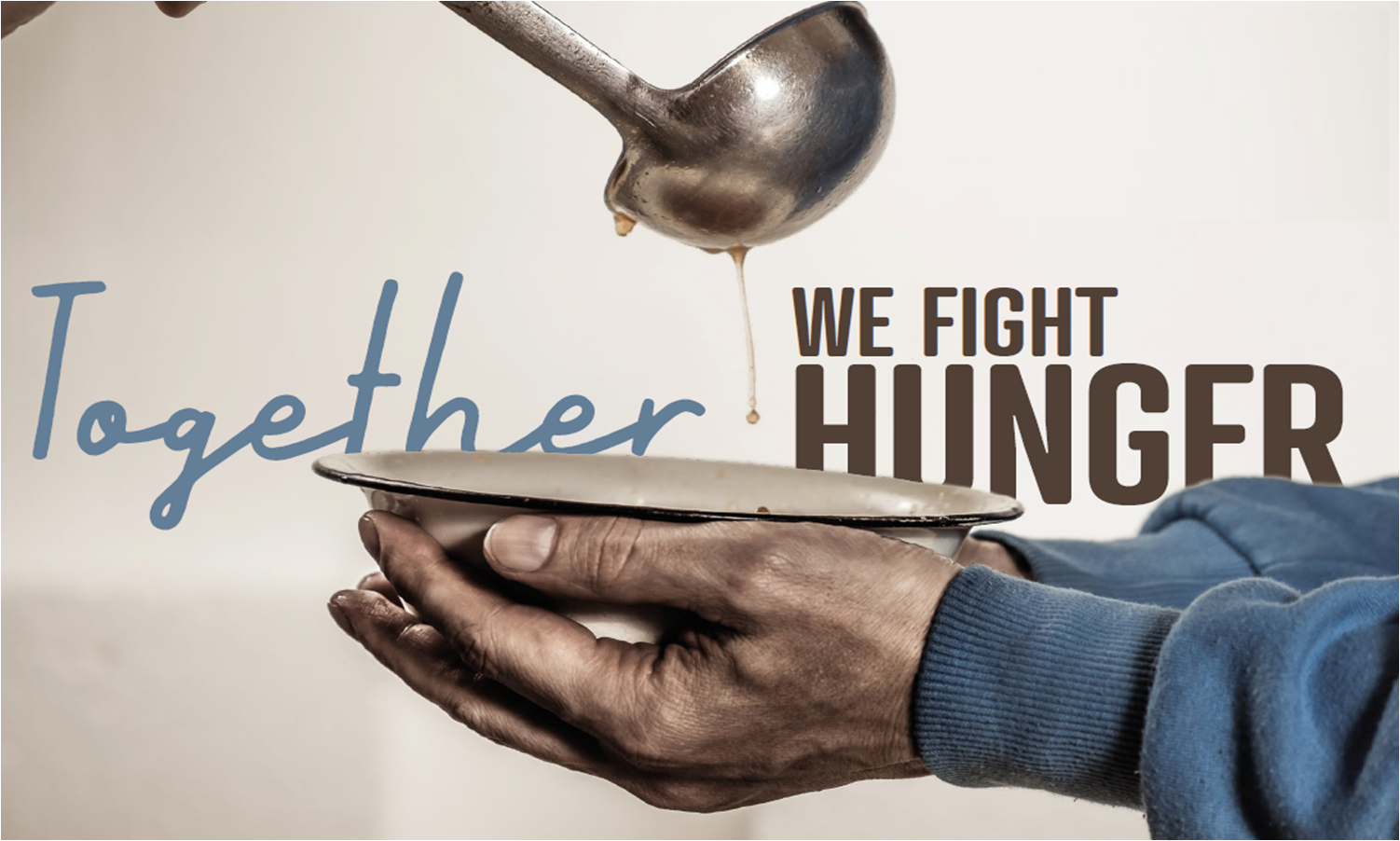
Hunger hides in every community. That’s why Rotary clubs across the globe support programs to provide healthy food and develop sustainable solutions to food insecurity. Fighting hunger to build stronger communities – that’s what People of Action do.
Hunger hides in every community. All over the world, Rotary supports programs to provide healthy food and develop sustainable solutions to food insecurity; however, despite all efforts, hunger still claims the lives of 10,000 children and 15,000 adults every day.
Some may recall the 2005 film The Girl in the Café starring Bill Nighy as Lawrence and Kelly MacDonald as Gina. Written by Richard Curtis, the film is a romance, but delivers a powerful message of social justice. Lawrence, a British Civil Servant, is preparing for a G8 summit that will determine the scope of the world’s effort to reduce extreme poverty and hunger.
But perhaps the most poignant scene is where Gina responds to the British Prime Minister’s dinner speech at the G8 summit, slowly clicking her fingers to represent the death of a child somewhere in the world.
Snap
“There they go.”
Snap.
“And another one.”
The question posed in this film is, can a shy, unassuming girl like Gina make a difference? Indeed, can any of us make a difference to a problem so vast and complex?
Today, despite tremendous efforts over the past 40 years, one child still dies every three seconds – the time of Gina’s slow finger click. A recent report from the United Nations warns that the number of hungry people worldwide ‘increased for a third consecutive year in 2018, and now exceeds 820 million. And some two billion people – over one-quarter of the world’s population – lack regular access to safe, nutritious, and sufficient food’. Another Report from the UN World Food Program says that seven million people died from hunger in 2020.
“Hunger, famine, malnutrition and starvation are truly a global problem, plaguing communities throughout the developing world and even in developed countries, where surprisingly high numbers of families struggle daily to put food on the table,” wrote Rotary International General Secretary John Hewko in a letter to the official World Food Day website.
While many countries are struggling to control obesity, others are struggling to alleviate hunger. Yet the countries with obesity also have families grappling with poverty and thus hunger.
The issue of hunger is nothing new. Throughout history, civilizations have suffered from famines. The ancient Egyptian pyramid builders were rendered helpless and their civilization collapsed due to the famine around 2180 BC. Likewise, between 400 and 800 AD, the population of Rome fell by over 90 per cent, mainly due to famine and plague.
In more recent times, the Great Irish Famine of 1845-49 killed more than one million people. The Chinese famine of 1959-61 killed between 15 and 55 million.
Since its beginning, Rotary has been involved in hunger programs. In 1979, Sir Clem Renouf launched The Rotary Foundation’s Health, Hunger and Humanity (3-H) grants program, with an emphasis on self-help. Through this program, the Foundation provides grants for large-scale international development projects that improve health, alleviate hunger, and strengthen human and social development.
Rotary also has two international action groups – the Rotarian Action Group for the Alleviation of Hunger & Malnutrition, and the Food Plant Solutions Rotary Action Group.
Additionally, programs such as Rise Against Hunger and Feed 10Million are examples of exceptional collaborative efforts by Rotarians to feed persons in need.
Of course, the most successful Rotary projects are those that offer a sustainable solution, such as teaching the local community how to maintain healthy food production, or how to use native plants as a source of nutrition.
For example, volunteer project leader, Dr Russell Stephenson, a retired horticulturist from the Rotary Club of Nambour Qld, received a global grant for the ‘Alleviation of Malnutrition in Papua New Guinea’.
Another example is The Sustainable Cambodia Project, where Rotarians work as volunteers and empower rural Cambodian families. A number of clubs around the world have provided support to this ongoing project, which was initiated by Richard Allen, of the Rotary Club of Gainsborough, US.
Since the 1980’s, there have been many appeals from world leaders to stop hunger. Who can forget initiatives such as ‘Do They Know It’s Christmas?’ – a song written in 1984 as a reaction to television reports of the 1983-85 famine in Ethiopia. The song raised £8 million for the cause. Similarly, in 1985, the supergroup USA recorded ‘We are the World’ and raised over US$63 million for humanitarian aid in Africa and the US.
However, despite aid and modern methods, predictions for 2021-2022 suggest that food shortages caused by COVID-19 will kill more people than the pandemic itself.
Although we have made progress towards alleviating hunger, it will be a huge challenge to achieve the United Nations’ Sustainable Development Goal of zero hunger by 2030.
There is a powerful case to do even more than we have to date. In particular, improving child nutrition is one of the best investments governments and Rotary can make.
Like Gina in the film, we can all make a difference if we try. A sustainable difference.
The age-old adage still provides the key to this success: Give a man a fish, and you feed him for a day. Teach a man to fish, and you feed him for a lifetime.